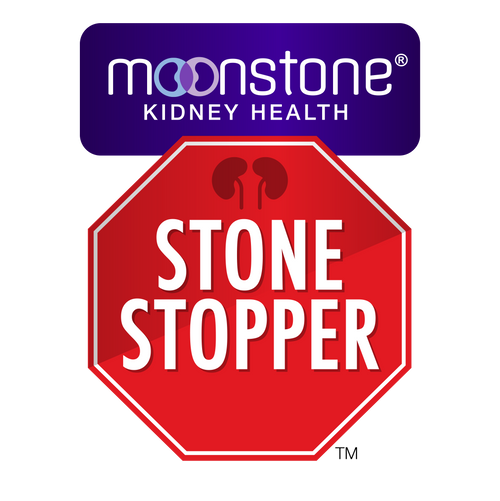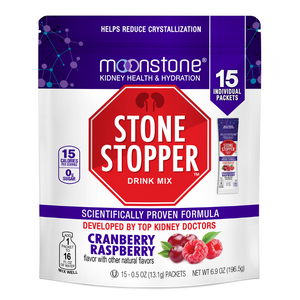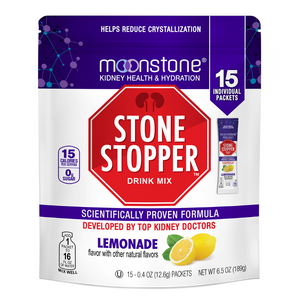The agony of passing a kidney stone can be overwhelming, but understanding the stages of this process is key to managing the pain effectively. Kidney stones, those tiny crystalline formations that can cause excruciating pain, are unfortunately not an uncommon ailment. Anyone who has experienced them can attest: passing a kidney stone is a journey marked by distinct stages. In this comprehensive guide, we'll explore these stages, shedding light on what to expect and how you can navigate this challenging process.
Kidney Stones: An Overview
Kidney stones, those small, hardened deposits formed in the kidneys, are composed of salts, calcium, minerals, and waste chemicals filtered from the blood. Understanding the four types of kidney stones—calcium, uric acid, cystine, and struvite—sets the stage for comprehending the challenges they pose. While microscopic stones may pass without symptoms, larger stones can cause severe pain, infections, and potential surgical interventions.
Calcium Stones
The most prevalent among kidney stones, calcium stones, also referred to as calcium oxalate stones and calcium phosphate stones, form when there's an accumulation of calcium and oxalate crystals in the kidneys. Elevated levels of calcium in the body, often associated with hyperparathyroidism, contribute to the development of calcium stones.
Uric Acid Stones
The formation of uric acid stones is a relatively common occurrence. These stones materialize when there are high levels of uric acid in the urine. Typically found in individuals with insufficient water intake or diets rich in animal protein, uric acid stones have a higher incidence in men.
Struvite Stones
Also known as magnesium ammonium phosphate or infection stones, struvite stones arise due to urinary tract infections. If not promptly addressed, struvite stones may progress to jeopardize kidney function, including the development of Staghorn kidney stones.
Cystine Stones
Cystine stones stem from a rare condition known as "cystinuria." This disorder prompts the leakage of a natural substance called "cystine" into the urine. When an excess of cystine is present in the urine, it can lead to the formation of kidney stones. Individuals affected by cystinuria commonly experience recurrent stone formation.

Stages of Passing a Kidney Stone
Stage 1 — Kidney Stone Formation
The journey begins with the formation of kidney stones. In the initial phase, the stone's formation might not cause noticeable pain, but as it dislodges from the kidney wall, intermittent and sharp spasms can occur as your kidney's attempt to eliminate the stone.
Stage 2 — The Kidney Stone Exits Your Kidney and Enters Your Ureter
Once formed, kidney stones can either stay in the kidneys or begin their descent down the urinary tract. As the stone moves into the ureter, discomfort may persist due to its larger size (above 2-3 mm in diameter). This stage is often characterized by severe flank pain, radiating towards the lower abdomen and groin.
Stage 3 — An Increase in Bladder Pressure
Upon reaching the bladder, the pain diminishes, making way for intense pressure and a frequent urge to urinate. The stone may temporarily obstruct the urethra entrance, requiring a brief wait before attempting to urinate again.
Stage 4: The Kidney Stone Passes
The moment many dread but anticipate is the actual passing of the kidney stone. The final stage involves the active effort of passing the stone through the urethra, requiring a determined push during urination.
It's crucial to stay hydrated during this stage, as increased fluid intake can facilitate the stone's movement.
How Does Passing a Kidney Stone Feel?
The experience varies; some may pass small stones without notable pain, while others with larger stones endure severe symptoms. Symptoms of a large kidney stone include sudden and intense pain, pain during urination, blood in urine, urgent need to urinate, and accompanying nausea, vomiting, fever, or chills. Seeking medical attention for accurate diagnosis is crucial at the onset of symptoms.

Kidney Stone Treatment:
Small stones may pass within 1-2 weeks, while larger ones may take 2-3 weeks to navigate the urinary system. Stones persisting beyond four weeks may necessitate medical intervention After a thorough examination, conservative and/or surgical techniques may be employed, depending on stone severity.
For smaller stones:
-
Watchful Waiting: If the stone is small and likely to pass on its own, the doctor may recommend watchful waiting. This involves monitoring the stone's progress and managing symptoms with pain medications.
-
Hydration: Drinking plenty of water is often recommended to help flush out smaller stones as well as increased fluid intake.
-
Pain Management: Often times, over-the-counter pain relievers like ibuprofen or acetaminophen may be suggested to manage pain during the passage of small stones.
-
Medication: In some cases, doctors may prescribe medications such as tamsulosin to relax the muscles in the ureter, which helps facilitate the passage of the stone.
-
Medical Expulsive Therapy (MET): MET involves the use of medications to aid the spontaneous passage of stones by relaxing the muscles in the ureter.
For larger stones:
- Extracorporeal Shock Wave Lithotripsy (ESWL): This non-invasive technique employs sound waves to generate vibrations that effectively dismantle the stone into smaller, more manageable fragments. These smaller pieces can then traverse your urinary tract and exit your body through the urine.
- Endoscopic Ureteroscopy with Holmium Laser: This minimally invasive technique involves the use of a specialized instrument called a ureteroscope, which is inserted through the urethra and into the urinary tract. The ureteroscope is equipped with a Holmium laser, a precise and powerful tool. Once the ureteroscope is in position, the laser is employed to break down the kidney stones into smaller fragments, facilitating their removal.
- Surgical removal may be necessary for stones larger than 6 mm.








2 comments
Hi Cynthia! Occasionally we will hear of an upset stomach if the person is on other supplements that are high in magnesium. We would suggest taking alongside food, and as always, consulting with your physician and approving any supplement or medication for you.
Is there any side effects taking moonstone? Potassium citrate gave me heart palpitations, bad nausea,